Are You an Oversharer?
Phew! We’ve covered a lot in this blog, haven’t we? And this is coming a bit late!
Oversharing as a coping mechanism is a complex topic, and it’s clear that sharing our emotions and experiences can have both positive and negative impacts on our mental health and relationships.
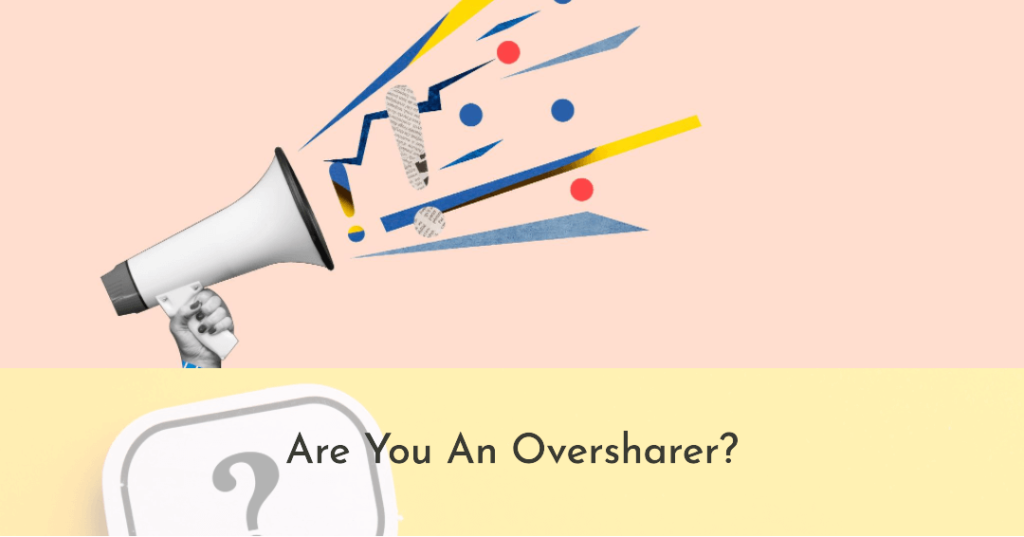
I’m sure you’ve heard the saying “know thyself” before, but what does that mean exactly? Well, when we know ourselves better, we can better understand our own actions and behaviors. You’ll also be able to recognize when someone else is exhibiting signs of mental illness or other disorders in their everyday life.
So, let’s dive into the fascinating topic of oversharing as a coping mechanism. Have you ever found yourself spilling your emotions and personal experiences to friends, family, or even strangers? We’ve all been there, eagerly sharing our triumphs, heartaches, and daily struggles. It might feel liberating at first, but oversharing can also lead to unintended consequences.
The Coping Conundrum
Sharing, Caring, and (Over)Sharing
Oversharing is a common coping mechanism for people dealing with a range of mental illnesses and health conditions. It can be helpful, but it’s important to recognize that oversharing may not always be the best way to deal with your emotions.
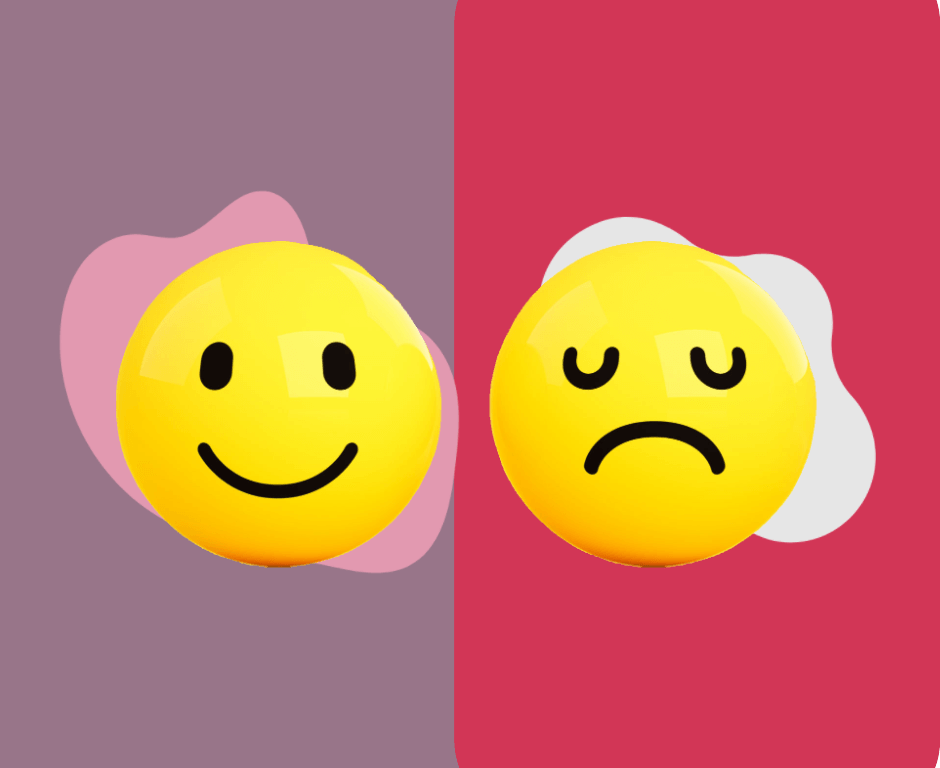
There are many reasons why you might feel the need to share more than what is appropriate: you might feel like no one else understands or cares about what’s happening in your life; you want someone else to validate or validate themselves by telling their story; or maybe even just because everyone else seems too busy posting pictures of themselves on social media all day long anyway!
But hold on a second; before we dive deeper into this oversharing rabbit hole, let’s take a step back and explore the concept of coping mechanisms and emotional sharing. Coping mechanisms are the strategies we use to deal with stress, adversity, or challenging situations. They can be healthy, like talking to a friend about your problems, or unhealthy, like turning to substances to numb the pain.
Emotional Oversharing
More Stories, More Problems?
Oversharing is most commonly used as a coping mechanism for stress and anxiety. When we are feeling anxious or stressed, it may feel like the only way to deal with these feelings is by talking about them with others.
This can lead us into an unhealthy habit of oversharing about our day-to-day lives-in some cases, this may even involve posting personal photos or videos online (hence why Instagram has become so popular).
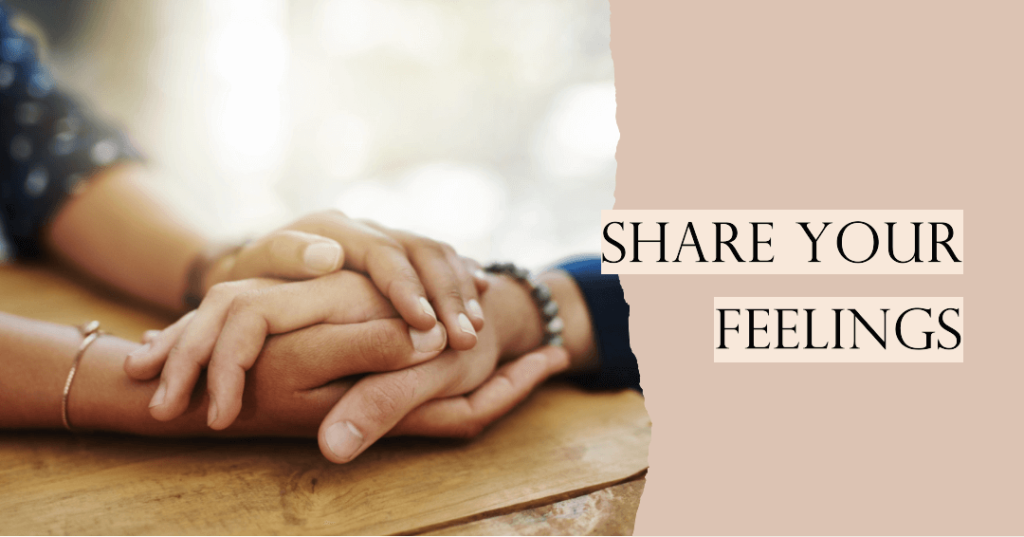
While sharing our experiences can be cathartic, it’s essential to be mindful of the impact it can have on our mental health and relationships. Oversharing has also been linked with depression; when people don’t feel accepted by others and have low self-esteem, then they might turn towards social media platforms such as Facebook or Twitter where they can share their experiences while seeking validation from other users who are experiencing similar feelings in real life!
The Validation Connection
Seeking Hearts and Likes
Ah, the allure of validation! We all crave it, and there’s nothing wrong with wanting to be acknowledged and supported by others. However, oversharing as a way to seek validation can become problematic. Relying too heavily on external validation can lead to a cycle of dependency and disappointment. It’s essential to learn to validate ourselves and seek internal validation rather than relying solely on the reactions of others.

The digital age has amplified the temptation to overshare through social media platforms. We find ourselves seeking approval through likes, comments, and shares, often forgetting that these virtual validations don’t define our worth or the authenticity of our experiences. So the next time you’re tempted to overshare for the sake of validation, take a moment to pause and remember that true validation comes from within.
Social Media Oversharing
Where Filters Fail
Ah, social media—the place where we can post our highlight reels and carefully curated moments. It’s become the go-to platform for sharing our experiences, both the good and the bad. Social media can be a fantastic tool for connecting with others and building a supportive community, but it’s essential to remember that what we see on the screen isn’t always the whole truth.
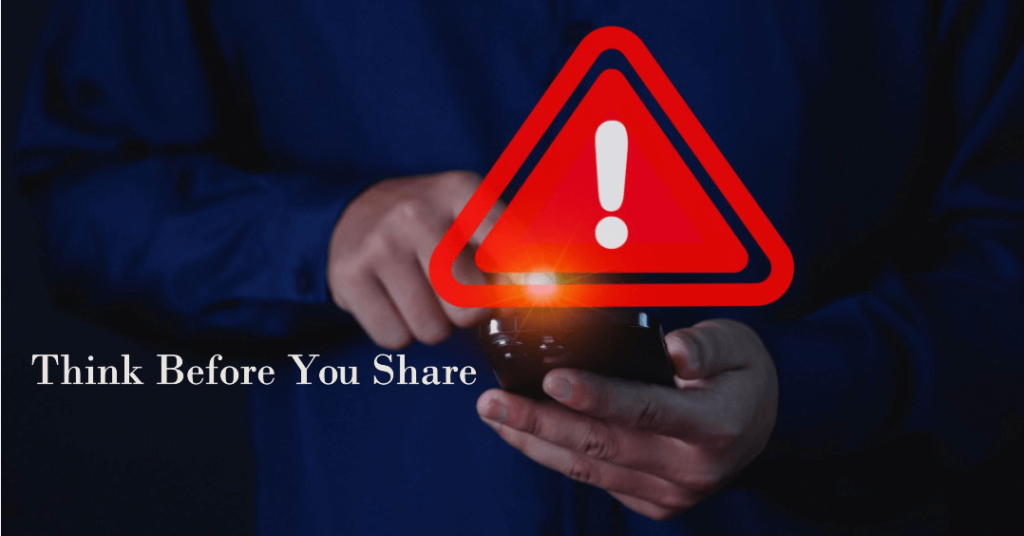
Many of us are guilty of oversharing on social media, using filters and captions to present our lives as perfect and problem-free. Behind those perfectly posed photos and witty captions, there may be a different reality—feelings of loneliness, anxiety, and insecurity. Oversharing on social media can create a false sense of connection, making us feel isolated when we see everyone else living their seemingly picture-perfect lives.
Psychology Behind Oversharing
When Sharing Becomes Unhealthy
The act of oversharing goes beyond just seeking validation; there are psychological reasons behind this behavior as well.
For some, oversharing may be an attempt to seek social support from others, or it might serve another function entirely. It could be a way to vent frustrations, cope with traumas, or even gain a sense of control over difficult emotions.
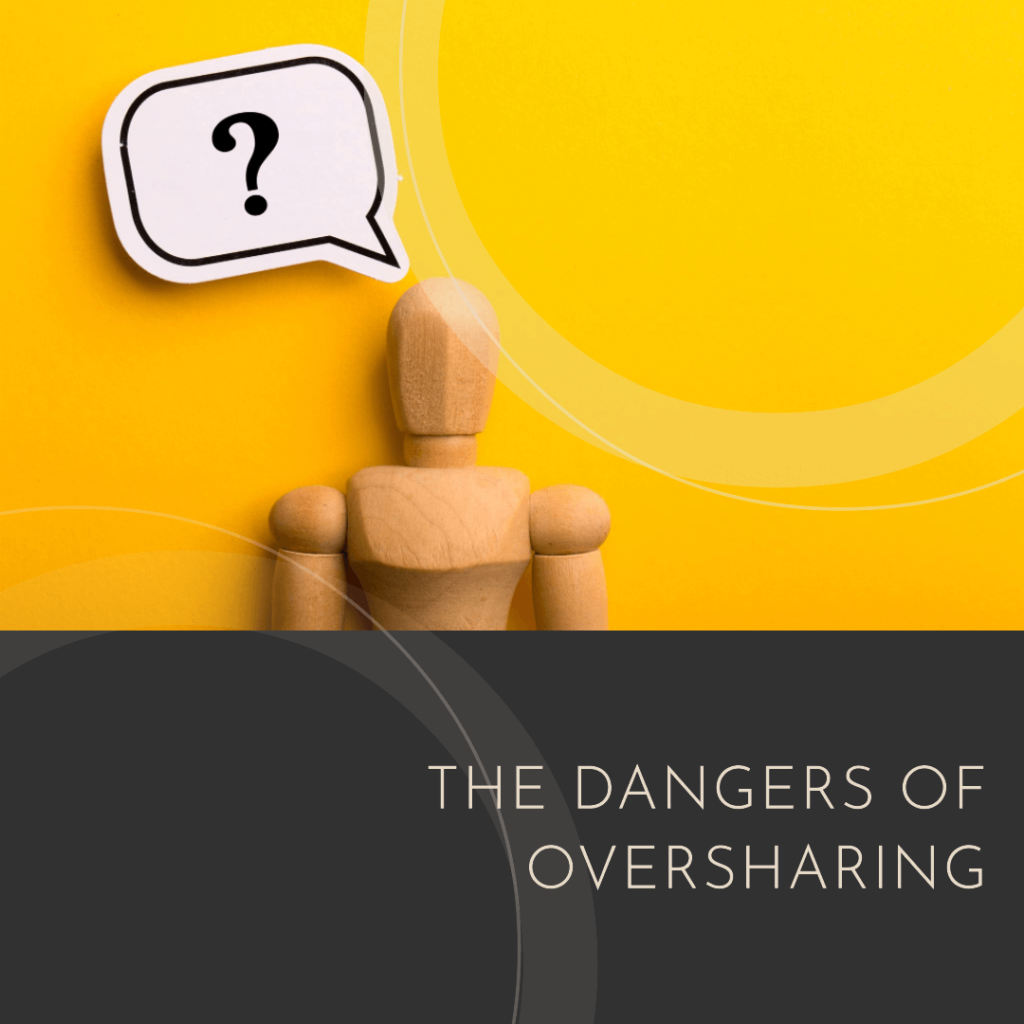
But here’s the thing, oversharing isn’t always the best way to cope with emotions. In some cases, it can even exacerbate existing mental health issues. If you find yourself becoming withdrawn after sharing your experiences, or if your friends start expressing concern about the frequency of your oversharing, it might be time to consider seeking help from a mental health professional.
Emotional Sharing and Healthy Coping
The Fine Line
Now, don’t get me wrong; sharing our emotions and experiences can be incredibly beneficial. It can create a sense of empathy, understanding, and connection with others. There’s immense power in vulnerability and authenticity. The key is to strike a balance between sharing and oversharing.

Healthy emotional sharing involves knowing when and with whom to share our experiences. It means understanding that not everyone will be receptive to our emotions, and that’s okay. Healthy sharing involves respecting our boundaries and those of the people around us. It’s about finding the right outlets and support systems that can genuinely uplift and empower us.
Oversharing
Is It a Cry for Help or Connection?
When we overshare, it’s essential to take a step back and reflect on our intentions. Are we seeking help, understanding, and support? Or are we using oversharing as a way to manipulate others into feeling sorry for us or giving us attention? It’s a delicate balance, and understanding our motivations can shed light on the deeper reasons behind our behavior.
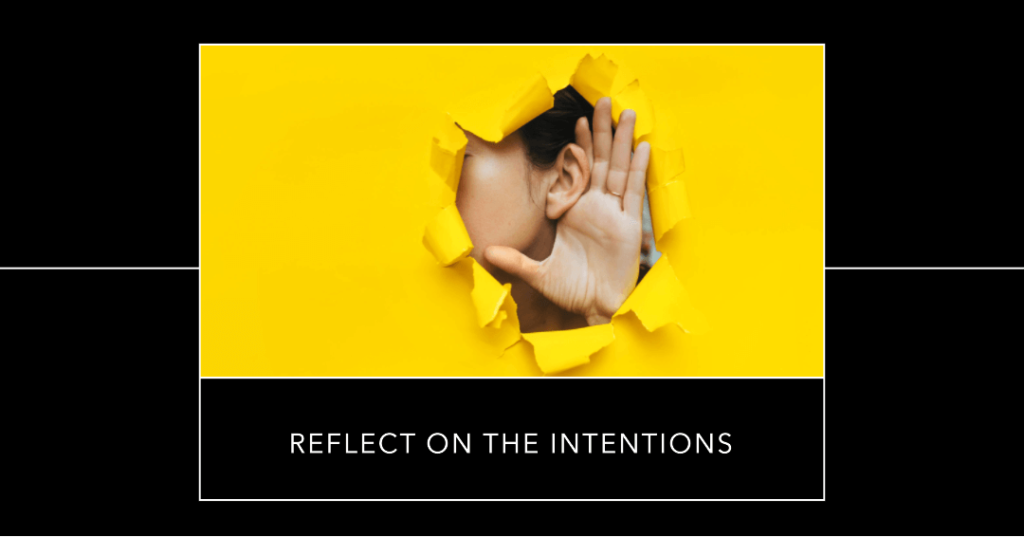
Oversharing can sometimes be a cry for help, a way of reaching out to others when we feel lost and alone. In such cases, it’s crucial to recognize that we may need professional help to cope with our emotions effectively. Sharing our experiences can be healing, but it shouldn’t replace seeking appropriate guidance and support from mental health professionals when needed.
The Temptation to Share It All
The temptation to overshare can be even stronger when dealing with trauma or significant life events. We may feel an overwhelming need to process our emotions by talking about the experience, often seeking empathy and understanding from others. But in the process of oversharing, we may inadvertently retraumatize ourselves or others who are also struggling to cope with similar traumas.
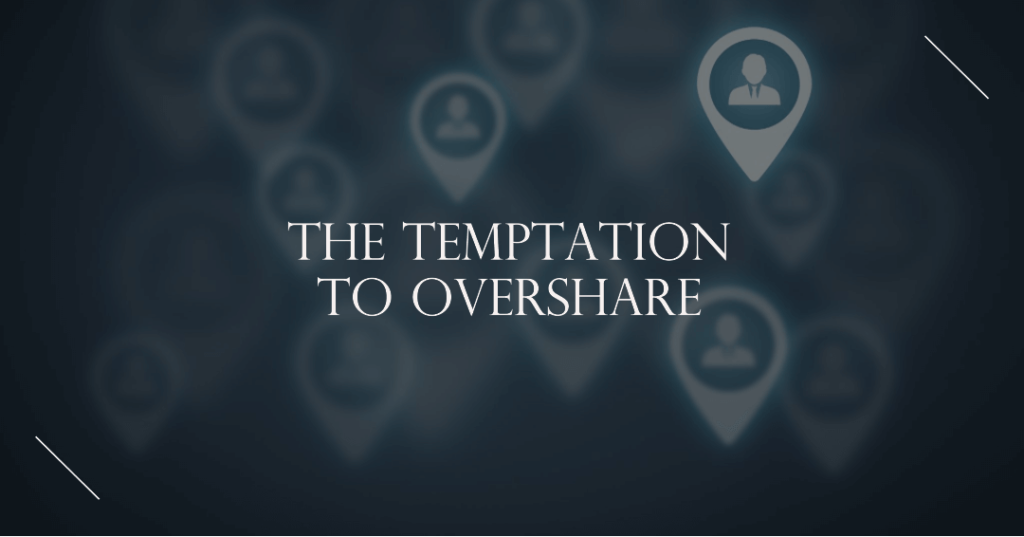
It’s essential to find a balance between sharing and protecting our emotional well-being. Sometimes, the best approach is to share our experiences in a controlled and safe environment, like with a therapist or support group. Sharing with individuals who can empathize and support us without judgment can be more healing than broadcasting our pain to the world.
Humor as a Coping Mechanism
Funny, Not Funny
They say laughter is the best medicine, and that rings true even in the context of coping with emotions. Humor can be a powerful coping mechanism, providing a much-needed break from the intensity of our emotions. It can help us lighten the mood, release tension, and gain a fresh perspective on our experiences. However, humor can also be a double-edged sword when it comes to oversharing.

Using humor to cope is fantastic, but we need to be mindful of the context and audience. What might be funny to one person could be hurtful or offensive to another. When sharing our experiences, it’s essential to strike a balance between using humor as a coping mechanism and respecting the feelings and boundaries of those around us.
Conclusion
Share, Connect, and Laugh!
In the ever-evolving landscape of coping mechanisms and emotional sharing, we must tread carefully. While sharing our experiences and emotions can be powerful, oversharing can lead us down a path of unintended consequences.
Let’s be mindful of why we share and whom we share with. Let’s seek validation from within ourselves and nurture authentic connections with others. Let’s laugh, cry, and celebrate together, remembering that life’s too short to take everything too seriously.
So, the next time you feel the urge to overshare, take a moment to pause and reflect on why you want to share and what you hope to achieve by doing so. If you’re seeking support, reach out to friends, family, or a mental health professional who can provide the understanding and assistance you need.
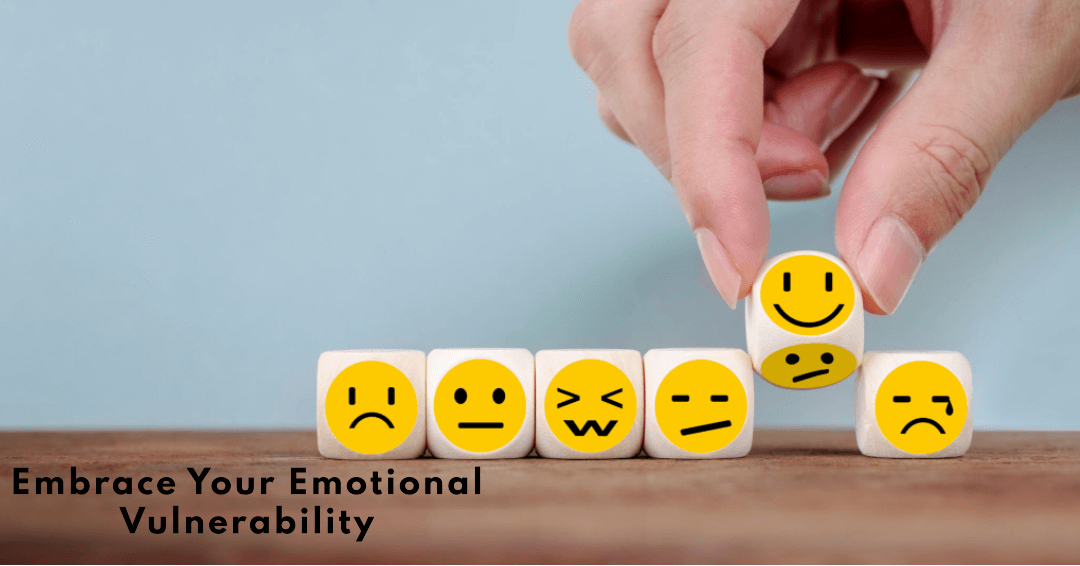
Let’s embrace our emotional vulnerability while also respecting our boundaries and the boundaries of those around us. Remember, it’s okay to share, but let’s do it mindfully and with care.
I want to extend a heartfelt thank you for taking the time to read this blog post. I hope it was informative, insightful, and most importantly, useful to you. Mental health is an important topic that affects us all, and I’m grateful for the opportunity to share my thoughts with you.
If you have any thoughts or comments, I encourage you to leave them in the comment box below. Your feedback is essential to me and helps me create content that is tailored to your needs.
If you found this post helpful, please subscribe to my newsletter for more resources and updates on mental health. You can also reach out to me via email if you have any questions or just want to chat. Remember, taking care of your mental health is important, and you are not alone.
Leave a Reply